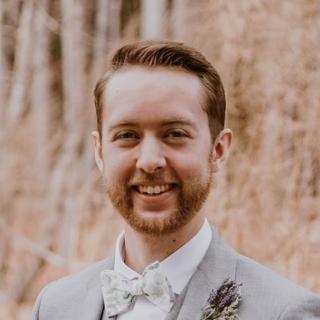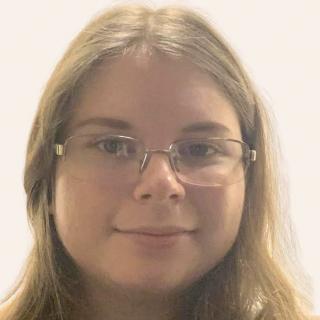Graduate Student

Jackson is primarily interested in the discovery and creation of novel biological systems that can be used in faucets of bioremediation, human health, and space exploration. He has researched bacteriophages in depth, has discovered and annotated novel phages, and has investigated bacteriophage mechanisms of lysis. He has also done bioinformatics work regarding intrinsic disorder in Merkel Cell Polyomavirus and has explored HECTD3's involvement in cancer. He is a proponent of undergraduate research and learning and has developed a program to certify undergraduates in basic lab techniques to better prepare them for academic research. Currently, he is pursuing a PhD at UF and is teaching, taking courses, and working with Dr. Averesch researching bioplastic production.

Brendan obtained a B.S. in Horticulture from the University of Georgia in 2017 and graduated in 2019 with a dual M.S. in Crop and Soil Science and Sustainable Agriculture from the University of Georgia and Università degli Studi di Padova, respectively. He is presently working toward completion of a Ph.D. in Plant Science at Utah State University's Crop Physiology Laboratory. His graduate research work encompasses photobiological studies and development of novel resource supply, monitoring and control approaches for the plant root-zone in microgravity that are capable of sustaining multiple, successive plant generations.

Born and raised in Salt Lake City, Utah. Obtained my bachelor’s in graphic design from the University of Utah where I also commissioned into the US Air Force. Received my master’s in Human Services: Health and Wellness from Liberty University. I am leaving active duty for a couple of years to finish my master’s in microbiology and gain experience in the field.

Katie is a PhD student in the Biomedical Engineering Graduate Group at UC Davis working in the McDonald/Nandi Lab. She received her BS in Biomedical Engineering from the University of Oklahoma, where she worked under the NASA EPSCoR STEM Workforce Development grant to develop targeted nanoparticles for therapeutic delivery. Her current work uses plant viruses to separate antibodies and Fc-fusion proteins from crude feedstocks for the production of biopharmaceuticals in space.

Gwyneth graduated from UC Berkeley in 2020 where she did nearly 3 years of research and a fellowship in reproductive neuroendocrinology, chronobiology, and cellular biology. She then transitioned to the UCSF-Gladstone Institute of Neurological Disease where she pursued novel research into the contributions of cellular energy metabolism and bioenergetic failure into neurodegenerative disease pathogenesis. Following this, she worked as a Senior Research Associate at Conception Biosciences where she focused on the development of biotechnologies to turn stem cells into viable eggs for individuals and couples to overcome physiological, age-based, and sexuality-based barriers to reproductive success. With NASA CUBES, Gwyneth is developing innovative approaches to build on the Arkin Lab’s recent successes engineering Spirulina for nutrient, pharmaceutical, and flavor production with applications for supporting human exploration of space. She is devising innovative ways to further improve the efficiency of engineering this previously recalcitrant organism and determining the best routes for metabolic engineering of these critical products. She is also interested in pursuing questions surrounding human physiology and reproduction in space with the goal of improving health outcomes for astronauts and space travelers both during missions and upon return to Earth. When she’s not in the lab, Gwyneth loves to spend time with her puppies—Willow and Pandora—and play guitar. She also fancies herself an amateur shark diver and is on the Board of Directors for a literacy nonprofit.

Angela received a B.S. in Aerospace Engineering from the University of Florida in 2021. She is currently a graduate student in the Department of Mechanical and Aerospace Engineering at the University of Florida where she works with Dr. Amor Menezes. Her work in CUBES is in the area of food and pharmaceutical synthesis and includes modeling of plant-based production of biologics in space as well as AI-based control of environmental conditions to maximize food production.
Noah received a double B.S. in Biochemistry and Biology from the University of Wisconsin - Stevens Point in 2020. He is currently pursuing a Ph. D. in Plant Science as a graduate research assistant in the Crop Physiology Lab at Utah State University in Logan, Utah. Noah's interests include optimizing hydroponics systems and plant nutrition for efficient production in closed systems. Outside of CUBES, he enjoys backpacking, geocaching, and flying general aviation airplanes.

Lorenzo is a Master's degree student in Agro-food Biotechnology in Verona (IT). He earned his Bachelor's degree in Biotechnology in Pavia (IT) and he works as a research student in Davis. His previous experience mostly concerns plant biotechnology as he worked in molecular biology and protein purification of Zeaxanthin epoxidase.

Vrinda Sharma is a graduate student in the CEE department at Stanford. She is working in the Criddle group on engineering autotrophic microorganisms for P4HB polymer production. She received a B.A. in Biological Sciences from Cornell University in 2022 and worked on impact of biocides like Triclosan on soil microorganisms Stenotrophomonas maltophilia in Hay Lab. Post graduation, she worked as Research Associate I in the Microbial Engineering team in Pivot Bio where she got interested in synthetic biology for environmental applications
Tressa is a PhD candidate in the Biochemistry, Molecular, Cellular and Developmental Biology graduate group at UC Davis. She earned her B.S. in Environmental Systems: Ecology, Evolution and Behavior at UC San Diego. Previously she worked on harnessing microalgae for production of lipids for biofuels, as well as production of recombinant therapeutic proteins. Her current work is focused on producing recombinant therapeutic proteins for use in space by engineering whole plant systems.

Shanice is a PhD student in the Chemical Engineering department at the University of California, Davis, working under Dr. Karen McDonald and Dr. Somen Nandi. She earned her B.S. and M.S. in Chemical Engineering at Northwestern University, and has prior experience with bacterial synthetic biology and metabolic engineering. She worked as a pilot operations engineer at Edwards Lifesciences before returning to school. Her current research involves the purification of pharmaceuticals in transgenic plants within the scope of the NASA CUBES II project.
Outside of research, Shanice enjoys running, hiking, gaming, and arts and crafts.
Wienke is a graduate student in the Bioscience Engineering program at Ghent University, specializing in biochemistry and biotechnology. Currently, she is a visiting student intern at the University of Florida, collaborating with Dr. Nils Averesh on microbial physiology and metabolic engineering, with a particular focus on carbon metabolism and biopolymer synthesis.
Her ongoing research, a collaboration with Lucerne University of Applied Sciences and Arts and the European Space Agency (ESA), investigates the effects of microgravity on gene expression patterns in intervertebral discs (IVD), offering insights into cellular adaptation in space environments.
Previously, Wienke worked on projects involving the engineering of advanced enzybiotics as next-generation antimicrobial agents, employing molecular biology techniques to develop effective treatments. She has also focused on enzyme immobilization, using concanavalin A to create carriers for β-galactosidase, and contributed to the development of designer cellulosomes for biofuel production by optimizing enzyme cascades for efficient biomass degradation.

Justin is a PhD student in the Chemical Engineering Department at the University of California, Davis. He earned his B.S. in Chemical Engineering at Northeastern University and worked as a bioprocess development engineer for Synlogic before returning to school. His current research focuses on using modified plant viral particles for the purification of antibodies and Fc-fusion proteins, and the production of pharmaceuticals in transgenic plants